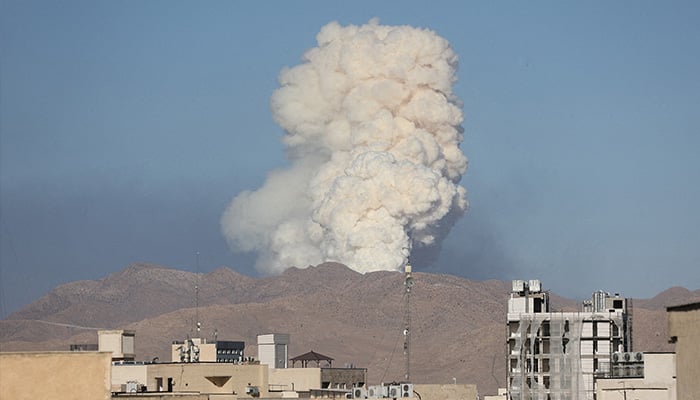Bombing Iran, Trump gambles on force over diplomacy
President Donald Trump's order of strikes on Iran's nuclear sites has brought the conflict into open
June 22, 2025

For nearly a half-century the United States has squabbled with Iran's Islamic Republic but the conflict has largely been left in the shadows, with US policymakers believing, often reluctantly, that diplomacy was preferable.
With President Donald Trump's order of strikes on Iran's nuclear sites, the United States — like Israel, which encouraged him — has brought the conflict into the open, and the consequences may not be clear for some time to come.
"We will only know if it succeeded if we can get through the next three to five years without the Iranian regime acquiring nuclear weapons, which they now have compelling reasons to want," said Kenneth Pollack, a former CIA analyst and supporter of the 2003 Iraq war who is now vice president for policy at the Middle East Institute.
US intelligence had not concluded that Iran was building a nuclear bomb, with Tehran's sensitive atomic work largely seen as a means of leverage, and Iran can be presumed to have taken precautions in anticipation of strikes.
Trita Parsi, an outspoken critic of military action, said Trump "has now made it more likely that Iran will be a nuclear weapons state in the next five to 10 years."
"We should be careful not to confuse tactical success with strategic success," said Parsi, executive vice president of the Quincy Institute for Responsible Statecraft.
"The Iraq war was also successful in the first few weeks but President Bush's declaration of 'Mission Accomplished' did not age well," he said.
Weak point for Iran
Yet Trump's attack — a week after Israel began a major military campaign — came as the cleric-run state is at one of its weakest points since the 1979 Islamic revolution toppled the pro-Western shah.
Since the October 7, 2023 attack on Israel by Hamas, which enjoys Iran's support, Israel — besides obliterating much of Gaza — has decimated Lebanon's Hezbollah, a group that would once reliably strike Israel as Tehran's proxy.
Iran's main ally among Arab leaders, Syria's Bashar al-Assad, was also toppled in December.
Supporters of Trump's strike argued that diplomacy was not working, with Iran standing firm on its right to enrich uranium.
"Contrary to what some will say in the days to come, the US administration did not rush to war. In fact, it gave diplomacy a real chance," said Ted Deutch, a former Democratic congressman who now heads the American Jewish Committee.
"The murderous Iranian regime refused to make a deal," he said.
Top Senate Republican John Thune pointed to Tehran's threats to Israel and language against the United States and said that the state had "rejected all diplomatic pathways to peace."











